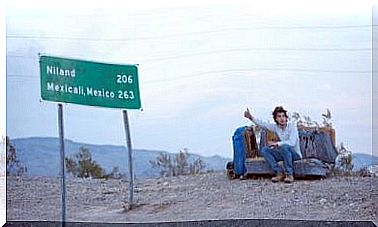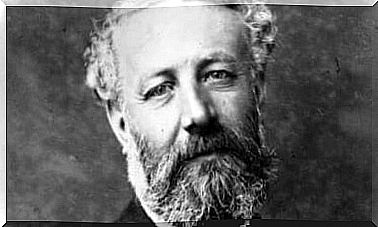Calculated Silence: A Form Of Manipulation

Calculated silence is sometimes a form of passive aggression. It is defined as a calculated way of using communication where silence plays a vital role.
Its purpose is to control and weaken the other person or his position. People manipulate not only with words, but also with silence. The latter tactic is extremely toxic because it wears a mask.
We call it calculated silence because it is not concluding, such as when someone ignores or stops talking to you. This type of manipulation combines agreement and disagreement, expression and lack thereof. Everything is done in a seemingly arbitrary way.
It is the manipulator who establishes the rhythm of communication for his own purposes. The other person is just a tool.
For silence itself is a form of very ambiguous expression. What normally happens is that the victim begins to feel confused or anxious. It does not know what to believe and spends a lot of time and emotional energy guessing what silence means. It feels insecure and doubt at every step taken.
It often ends with the victim thinking he or she is the problem. It simply does not know how to interpret the silences and therefore attaches too much importance to them.
Calculated silence comes in many shapes and sizes. A very common type starts when the manipulator wants you to talk about everything first. It’s not politeness; the person only lets you talk first to reconnoiter. He receives information about you and studies you.
But be careful. Just because someone stopped talking first does not mean they are trying to manipulate you. The behavior must be frequent or constant. It must be deliberate and one-sided. The person will not talk much about himself or do it evasively.

Another form of calculated silence is when someone suddenly hijacks the communication and then resumes it from nowhere. The person stops answering the phone or texting without explanation.
But later he appears as if nothing has happened. And if you ask the person why he was absent, you will only be told that nothing is wrong. You’re just looking at it the wrong way.
And then there is a kind of calculated silence where a form of censorship is imposed on certain subjects without explanation. When you try to talk to them, the other person will avoid the subject or be vague.
This of course applies to problems that are important to both parties. The problem here is not that one of them does not want to talk about something specific; the problem is that it is systematic and does not come with any explanation, with the knowledge that this attitude will affect the other person.
Finally , a very common form of calculated silence is to keep quiet about something because it is better for the other person not to know. This applies to problems that are of direct importance to the person being led behind the light. Some people call it “playing hard to catch”, but that is completely wrong in this case.
What distinguishes manipulative silence from spontaneous silence is the intention. Anyone who uses the strategy of hiding in the absence of words does so in order to control the other person.
They know it creates discomfort and projects uncertainty. And that’s exactly what they want. When they hide behind silence, they leave the other person unable to answer.

We should not confuse calculated silence with shyness. Not everyone has the ability to communicate spontaneously. There are people who need time to express what they think and feel. They do not speak because they are shy, insecure or lack confidence. But their goal is not to control others, but to protect themselves.
Calculated silence is distinguished by the effect it has on the other person. It is alternated with seemingly “normal” communication. The lack of words gives people the feeling that something is hidden.
Because it is so subtle, it is difficult to confront it. There is a fear of being accused of being paranoid or inventing things. But no matter how subtle it is, it does a lot to damage the relationship.
This type of silence can become quite aggressive, especially since it makes communication cloudy. Misunderstandings and wild guesses become the norm, and this form of abuse is difficult to detect, apart from its effects.
If a person can not stop this toxic behavior subtly, the only thing left is a direct, explicit rejection of it to make room.
Pictures from Pablo Thecuadro.









